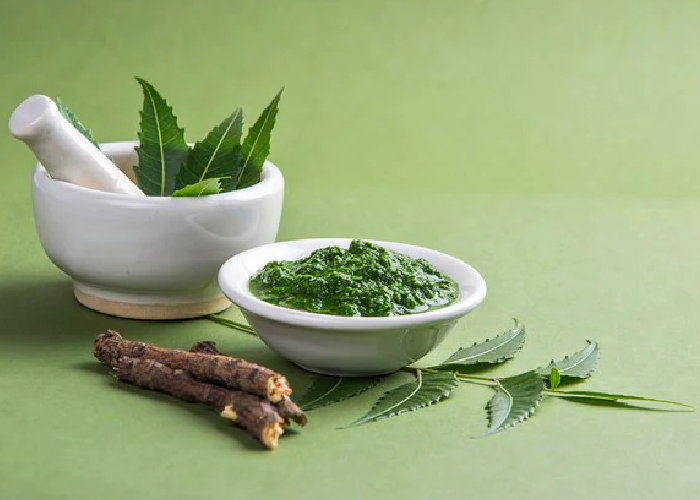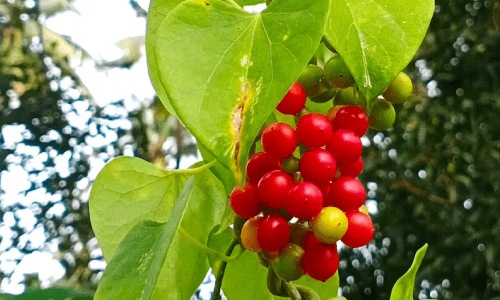Ayurvedic herbs and Panchakarma are the most popular Ayurveda stereotypes. There are many treatment methods in Ayurveda beyond Panchakarma. However, the role of ayurvedic herbs in healing is undeniable. The Samhitas have mentions of a wide variety of herbs that help cure different health conditions. Each of them has their own medicinal qualities and healing potential. In this blog, let us look into the top 9 essential Ayurvedic herbs. Top 9 Ayurvedic Herbs Here are some of the best herbs that Ayurveda recommends: Turmeric Turmeric is known as the golden spice due to the presence of the active component, Curcumin that gives it the yellow colour. The presence of Curcumin makes turmeric a great remedy for long-term health issues, despite like arthritis and diabetes. The strong anti-inflammatory and antioxidant properties of turmeric provides relief from joint pain, improves digestion and boosts immunity. Tulsi Known as “Queen of Herbs,” Tulsi has immune-modulating, adaptogenic and antibacterial properties. This herb helps boost your energy, lower stress and indeed promote respiratory health. Despite its benefits, it is not safe to overconsume Tulsi, especially if you have bleeding problems or low blood sugar levels. Triphala Triphala is a popular Ayurvedic formulation with three fruits (Amalaki, Bhibitaki and Haritaki) as its ingredients. It is majorly used externally, especially in Ayurvedic products, like shampoos. Brahmi Brahmi is popular as a brain booster herb. In Addition, It has cognitive-enhancing properties and is known to promote mental clarity and memory. However, consult with a qualified doctor before having this herb, especially if you have hypothyroidism or mental health issues. Neem Neem is referred to as “village pharmacy” for its antibacterial, antiviral and antifungal properties. The herb serves an array of purposes from helping to maintain general well-being to supporting immunity and even improving dental and skin health. It is best to avoid using neem during pregnancy. Also, make sure to get medical advice before applying neem oil topically as it may cause irritation to some. Ginger Ginger is a powerful ingredient in cooking as well as a medicinal herb. It is great for digestion and also, reduces nausea and inflammation. Having ginger helps relax tense muscles, promotes cardiovascular health and reduces menstrual cramps. However, it is safe to have it in moderation as high dosages may irritate the stomach. Also Read: Medicinal Plants in Ayurveda for Balancing Kapha Licorice Licorice is my absolute favourite. The herb tastes sweet and has calming properties. It also helps balance adrenal glands, provides relief from throat discomfort and improves respiratory health. Also, it helps reduce menopausal symptoms, and is great for gastrointestinal healing and managing stress. It is safe to use licorice under a doctor’s supervision because of prolonged usage or excessive dosages may cause hypertension or electrolyte imbalances. Guduchi Guduchi or Giloy helps in detoxification, improves immunity and offers longevity. It also helps reduce inflammation and infections, and improves overall well-being. However, avoid having Guduchi during pregnancy. Amla Amla is rich in antioxidants and vitamin C that makes it a great immunity booster. It also helps to regenerate the body, encourages healthy, glowing skin and hair and enhances digestion. Including the above-mentioned Ayurvedic herbs in your daily routine helps improve your general health. However, it is always safe to consult an Ayurvedic doctor before having any new herb. If you are struggling with any health issues, you can either book a consultation with us or send us a message via WhatsApp to +91 79074 89839. We have the best Ayurvedic doctors in Trivandrum who are always glad to help you. If you have any queries, contact us. You can also visit us at our hospital.
9 Essential Ayurvedic Herbs

